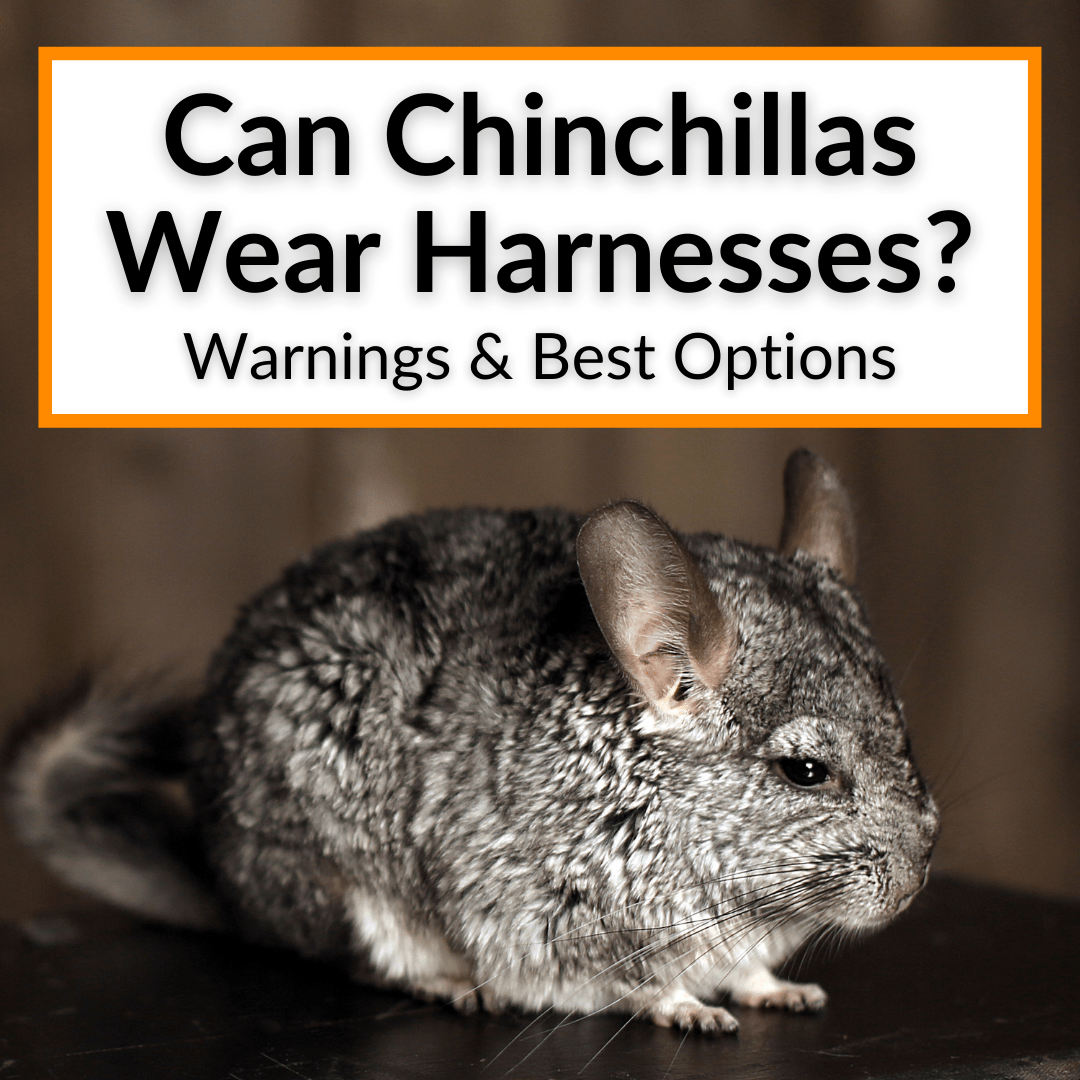
They have a talent for finding the tiniest little spaces and just disappearing.
Then you have the impossible task of getting them to come out from hiding and get back in their cage.
But you can’t just keep them in their cage. They need time outside for playtime, or they won’t be happy or healthy.
So what can you do?
A harness comes to mind. Using one would ensure you always have control over where your pet goes. It could never hide from you again.
But given their tiny, delicate bodies, can chinchillas wear harnesses?
Keep reading to learn everything you need to know about chinchillas and harnesses.
Can Chinchillas Wear Harnesses?
No, chinchillas should not wear a harness. They have fragile rib cages and vulnerable bodies, making a harness dangerous.
Chinchillas also have very dense fur, which makes it easy for them to slip out of a harness, rendering them mostly useless anyway.
That is the quick answer to the question at hand.
It is also important to know what others are saying about this question and what other dangers could potentially present themselves, if you do decide to put your chinchilla in a harness.
Fortunately, that is exactly what I intend to break down for you in today’s brief overview of using a harness for your chinchilla.
Why Chinchillas Should Never Wear Harnesses
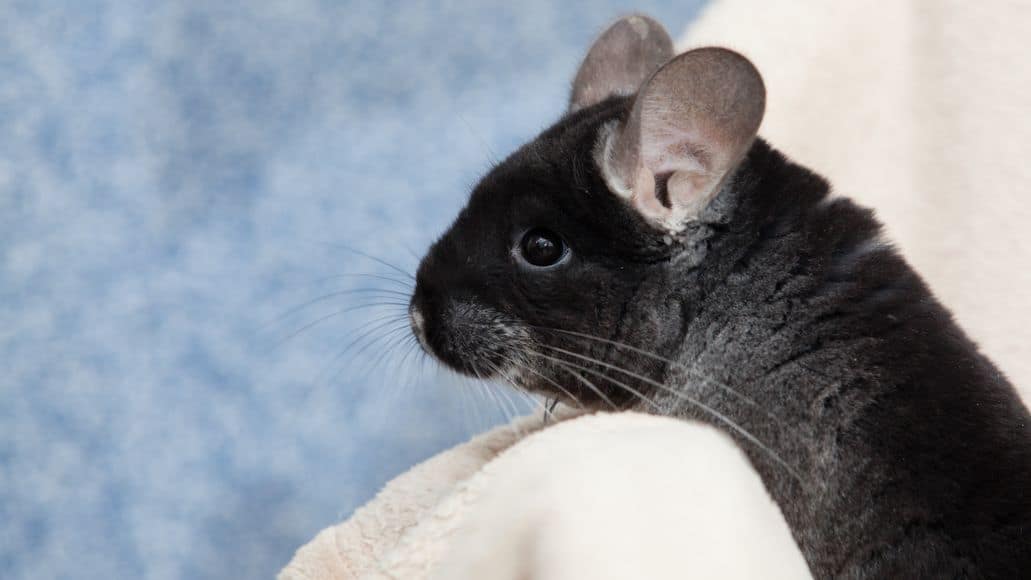
I want to start diving into why harnesses for chinchillas are not the best idea. First and foremost, the chinchilla is not an animal that is meant to be walked.
Secondly, a chinchilla should never be outdoors, which we will cover in more depth later in this post. It is essential to understand that a climate-controlled area with safe surroundings is the best environment for your chinchilla.
Taking them out of this environment could cause stress that can escalate into fatal consequences. Put simply, I would never use a harness or a leash to walk or control a chinchilla.
However, instead of just stating my opinion on the matter, let’s dive deeper into the points mentioned above. I want to make sure to be completely clear why this can be so dangerous for your chinchilla.
Risks Of Trying Using A Harness For Your Chinchilla
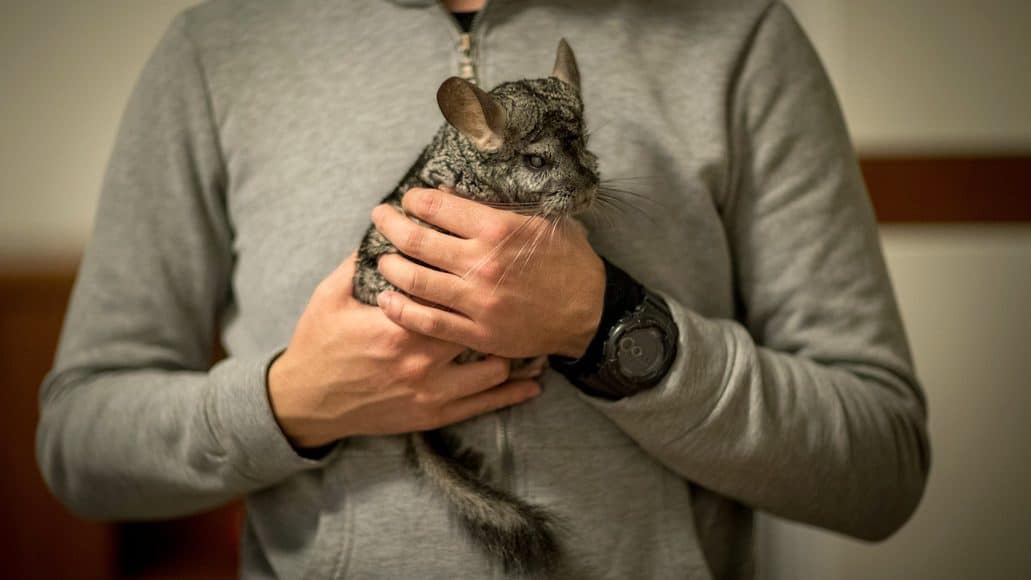
Let’s get into more of the specifics about the risks to your chinchilla if you decide to stray from the advice and use a harness anyway.
As stated previously, chinchillas have incredibly dense fur, which is going to be the first spot that you begin to encounter problems.
Attaching a harness to a chinchilla is nothing like attaching a harness to a dog. A dog’s body helps fill out the harness, making it snug and giving it a proper fit.
Now, imagine if you thought you had the harness tight around your chinchilla, and ventured off outside. Due to the dense fur, the harness is likely not tight and will slip off. You pet will run away and hide.
The first problem is that it is going to exceedingly difficult to capture in this situation, likely leading to death or the chance at you never find them.
Chinchillas are fast animals and can hop, climb, and squeeze into small dark spaces.
Trust me, you do not want to be stuck trying to find your chinchilla, if they did happen to find a way to get off their harness.
And even if you only use the harness indoors, you’ll still have a hard time getting ahold of your chinchilla. You’ll manage, but it will take time.
Can chinchillas wear collars? No, the problem here is the exact same as for harnesses. In fact, collars are more dangerous (see below) and even less likely to stay on.
In the end, using either is basically the same as if you hadn’t used a harness or collar in the first place. So what’s the point? Especially since there are other problems with the harness, like how fragile a chinchilla’s body is in general.
Chinchillas Have Fragile Ribs And Can Overheat Easily
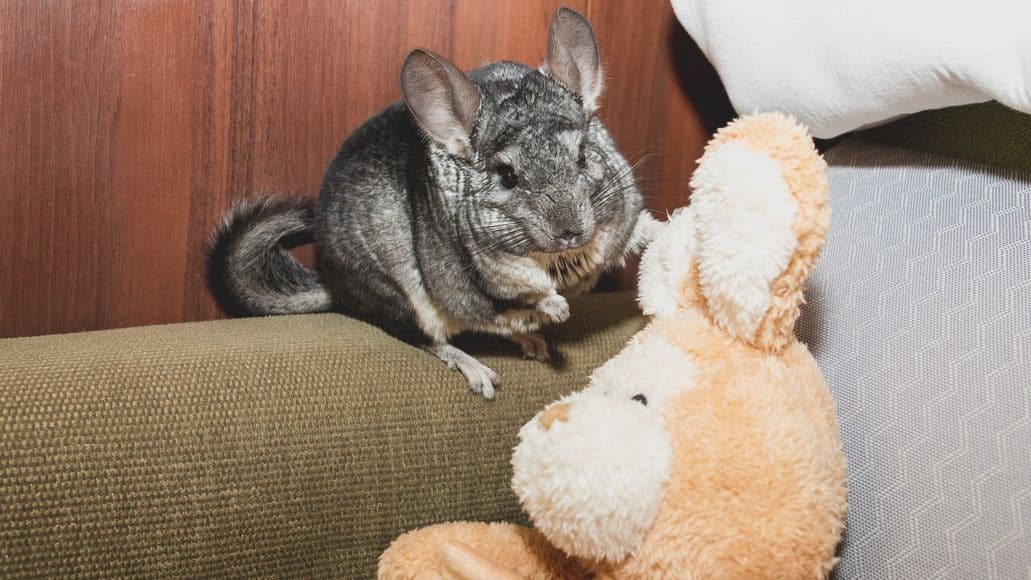
Chinchillas are fragile animal. I mention that a lot on this site and it is the primary reason for many of my recommendations, like avoiding wire bottom cages and going with something like the Critter Nation cage, which tops the list of the the best chinchilla cages on the market.
The best cages all have flat plastic shelves as the surfaces, which are softer on your chinchilla’s fragile bones and feet.
Well, the same applies to your chinchilla’s small, toothpick-like rib cages and their two pairs of floating ribs. It is far too easy to overtighten a harness, which could easily cause bone fractures.
And even if nothing happens while putting the harness on, the force from pulling on the leash could cause a rib injury, and potentially even a snapped neck or spine.
On top of this potential issue, you also begin dealing with the elements when you have a chinchilla outdoors in a harness. Of course, you should never have a chinchilla outside the house in the first place.
Outdoors, you add the potential for your chinchilla to overheat very quickly, which can cause illness and even death.
The harness traps heat even more, doubling down on the potential for an increase in body temperature. This all combines to create a recipe for disaster for your beloved chinchilla.
Trust me, as fun as it may sound, it is much better to be safe than sorry in these situations. Forget about the harness.
Learn How To Get Your Chinchilla In And Out Of The Cage Without A Harness
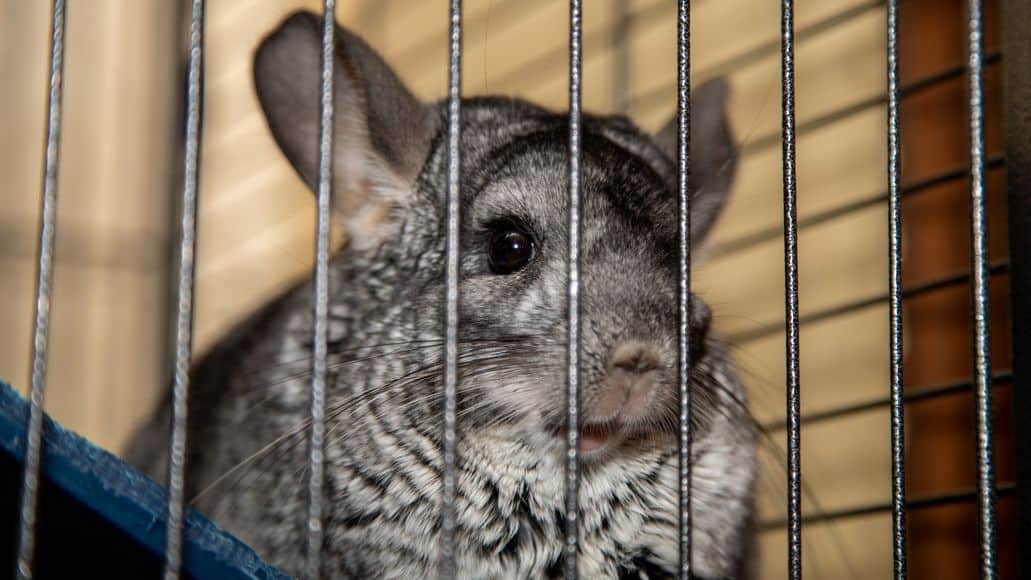
Probably the most common reason chinchilla owners consider using a harness is that they are hoping it will make it easier to get their pet in and out of the cage. This is something many beginning owners struggle with.
If this is you, I still highly recommend against using a harness. You can learn to get your chin in and out of the cage without having to resort to one.
The first step is to read my post about effectively getting your chinchilla in and out of the cage. You can find that article here.
Trust me, a harness is not the solution for accomplishing this. Doing it without one it is not as difficult as you may believe.
With a little bit of practice, and as your chinchilla builds more trust with you, this will become easier and easier as time passes.
Moral of the story….avoid harnesses for your chinchilla.
Chinchillas Wearing Harnesses: Final Thoughts
As discussed throughout this brief post, chinchillas make for an excellent pet, but they do have a fragile body and a unique personality.
Compared to other pets you could choose to adopt, they have specific needs. Some things that are normal with other pets are just not advised, or even possible, with chinchillas.
In the interest of safety for your new chinchilla, I highly recommend tossing the idea of a harness or leash out the window.
If you are planning some activity that would require a harness, it would be best to scrap that idea altogether. Find other activities to enjoy with your chinchilla that don’t require a harness or a leash.
Chili and I wish you the best of luck with your journey and appreciate you stopping by and reading today.
Share your thoughts.
What other insight can you provide other readers about using a harness for a chinchilla?
Do you have any other dangers that the Planet Chinchilla Community should be aware of that have not been mentioned in this post?
Be sure to share those thoughts, stories, and concerns by dropping a comment below.
As always, Chili and I appreciate you stopping by and reading today. Thanks again, and we will see you next time!
Leave a Reply